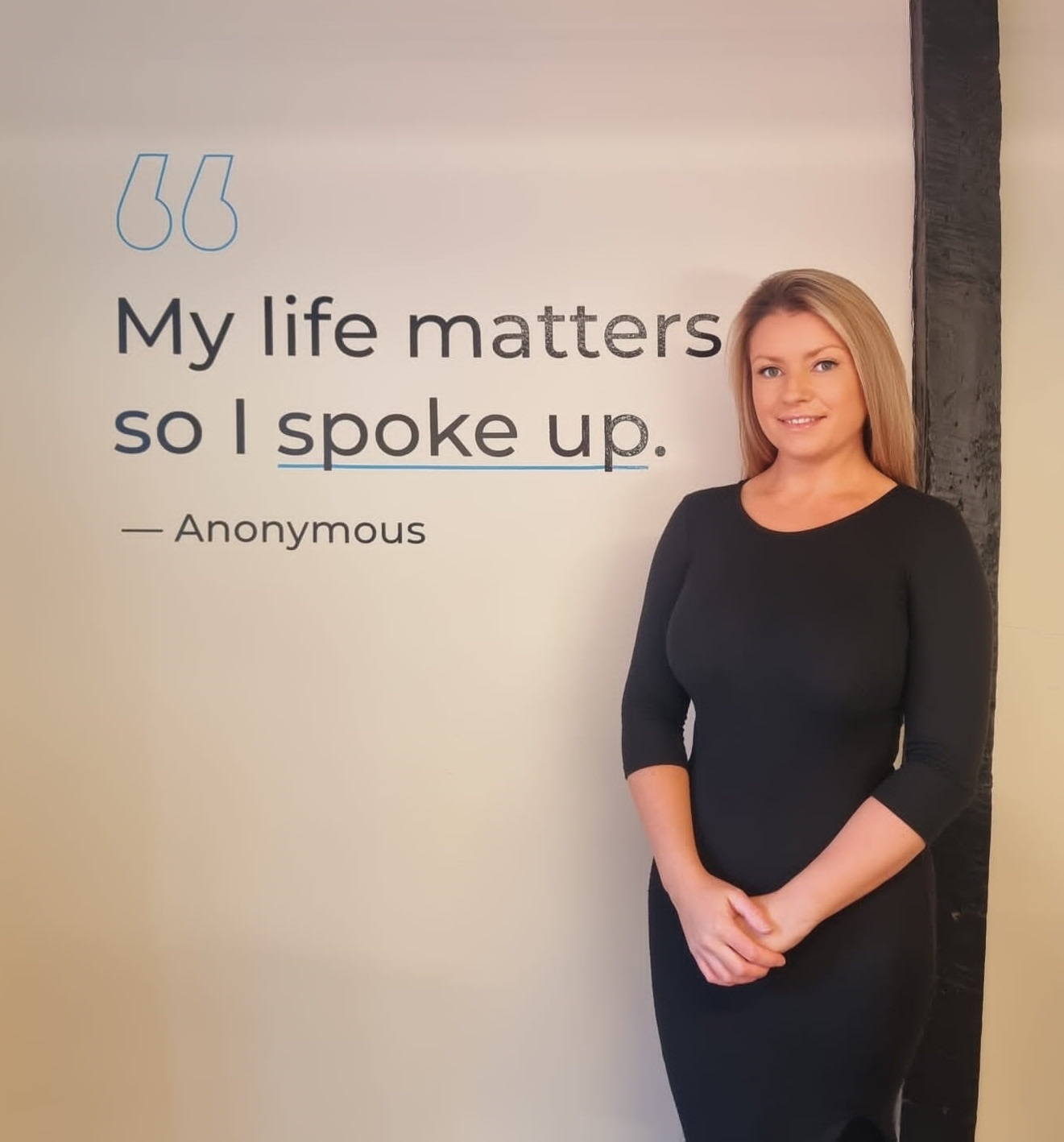Jo is a team supervisor here at the Domestic Abuse (DA) Alliance, supporting our managers and directors to deliver our organisational priorities, whilst overseeing and providing guidance and support to our call handlers and caseworkers to ensure they can provide professional legal assistance to the victims of domestic abuse that we support.
Describe a typical day at the DA Alliance
I usually start my day responding to emails from our referral partners, and legal partners, and contacting individuals who have self-referred. I also ensure that our call handlers are actively contacting new referrals, to ensure we meet our service delivery targets. I oversee our casework team, who take witness statements and support victims to prepare their court documents. I regularly deliver training on civil injunctions to specialist domestic abuse support services, to help their teams gain a better understanding of the legal process and what victims should expect at each stage.
What attracted you to your role at the DA Alliance?
Domestic abuse is something that has impacted my life significantly. When I was experiencing it, I never had the legal support I needed, and this has driven me to help others who are walking a similar path. After I had successfully achieved a diploma in Domestic Violence and Awareness and completed my Family Law Paralegal and Legal Administration qualifications, I applied for a role at the DA Alliance. The service we provide offers a vital lifeline to victims of domestic abuse, and it is incredibly rewarding that I can help others, who face the same challenges that I did, to escape abuse.
What is the most rewarding aspect of your role?
The most rewarding aspect of my role is when a civil injunction (i.e., a non-molestation order or occupation order) is granted by the courts to protect a victim, or a victim and their child/children. Not only does this mean they are granted powerful protection in the form of a court order, but it also enables them to start to cope and recover from the abuse and trauma that they have suffered so they can feel safe again.
Are there any frustrations or challenges, and how have you overcome these?
I regularly speak with victims who are terrified of what their perpetrator may do if they [the victim] start the process to seek a protection order. Understandably, the victim is often emotionally attached to the perpetrator, or under the influence of a third party advising them not to make the application. That’s why we spend a lot of time working closely with every person referred to our service, so that they know they are fully supported throughout the process. In many cases, a victim of domestic abuse may not feel it’s the right time to pursue their application. When this happens, we always provide them with our contact details, and signpost to other specialist services who may be able to offer the practical and emotional support they need at that time. We also encourage people to report any further incidents of abuse to the police. Once someone has the right support in place, it can help them find the confidence and strength to proceed with the legal process.
What more do you think could be done to support victims of domestic abuse?
The single biggest challenge domestic abuse victims face is access to Legal Aid. I would like to see means testing for Legal Aid eligibility removed for all victims of domestic abuse, so that they can access funding when they need it most, to support them throughout the legal process.
What advice would you give to someone applying to work at the DA Alliance?
The work we do here at the DA Alliance is incredibly rewarding but it’s not easy. Not only do you need to provide the most up to date legal information, but you must be able to empathise, and show compassion, patience, and consistency. This skill set can make all the difference to someone who is vulnerable and trying to navigate a complex legal system. A good awareness of what constitutes domestic abuse is essential. Domestic abuse is not only physical harm – it takes many forms, including psychological, financial, and emotional abuse. The experiences that victims share with us can be difficult to hear. Our management team take workplace wellbeing very seriously and support us in creating a positive work environment. This means we’re in a strong, healthy position to help others. There are lots of opportunities at the DA Alliance to continue our professional development across many aspects of the law. I feel extremely lucky to be progressing my career in family law with the DA Alliance and to follow my mission to protect victims and families of domestic abuse.






